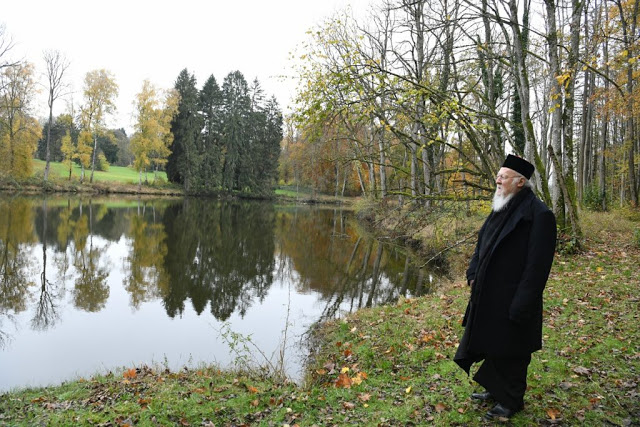 |
| Photo: N. Manginas |
This year marks the 50th anniversary of Earth Day, whose mission is to work with civil and faith communities for developing local solutions to global problems, including climate change, plastic pollution, and threats to biodiversity. Earth Day promotes programs ranging from low-impact actions to “a billion acts of green” to address the paramount challenge of our time.
Of course, every day is earth day! Every day is an opportunity to celebrate “the earth as the Lord’s and that all who dwell therein belong to the Lord” (Psalm 24.1). Every day is a reminder of our vulnerability and solidarity. In fact, today, more than ever, we are also reminded of our responsibility to the earth and each other in light of that interdependence between the earth and all its inhabitants. The ecological responsibility and the respect of the sacredness and the beauty of every human person, of the elderly and the disabled, the poor and the marginalized, the sick and the suffering, are today the universal categorical imperative for the whole humanity.
In recent weeks, with the alarming spread of the Coronavirus Disease 2019 (COVID-19), we have been painfully reminded of the interconnection among human beings throughout the world. So we are obliged to reflect further on the exigency and urgency of our response to issues that are increasingly gathering momentum and threatening our survival.
While it may be strained to draw sweeping comparisons or simplistic connections between the human impact on the natural environment and a global crisis like COVID-19, can we not wonder whether the mandated human isolation to prevent the spread of the virus has resulted in clearer water and cleaner air and in a reevaluation of our relationship with nature and its ability to heal us? We hasten to add, of course, that no loss of human life can ever justify any ecological renewal of the planet, but there is no doubt that individual action and community response are vital in encountering climate change and the coronavirus pandemic. And we fervently pray for the quick return of normalcy in these surreal times.
Crisis is a moment of clear and definitive judgment. And the COVID-19 crisis is a compelling moment of truth and assessment of our respect and regard for the precious gifts that we have received and been entrusted with by God.
Crisis is a moment of clear and definitive judgment. And the COVID-19 crisis is a compelling moment of truth and assessment of our respect and regard for the precious gifts that we have received and been entrusted with by God.
Over the past decades, we have underlined and declared that when we are isolated from God, then we, inevitably, if not inadvertently, also exploit the planet’s resources. Indeed, we have repeatedly associated and even identified such behavior against God’s creation with sin. Like us, the earth, too, is suffering from “isolation” and alienation. “The whole of creation is groaning with labor pains to this day . . . eagerly longing for . . . its liberation by the children of God” (Romans 8.19–22). This time of uncertainty and insecurity has taught us to care for one another. Will we also learn, at last, to mitigate our impact on the environment?
As a result of the ecological disruption created by the global crisis of this coronavirus pandemic, Earth Day will be celebrated electronically this year throughout the world. How paradoxical that the earth continues to inspire, instruct, and invite us toward a renewed commitment and restored covenant with creation. How will we respond? Our prayer is that this critical moment will be for all of us and for the entire planet an occasion for renewal and redemption, for liberation and transformation, as well as for inspiration and illumination.
